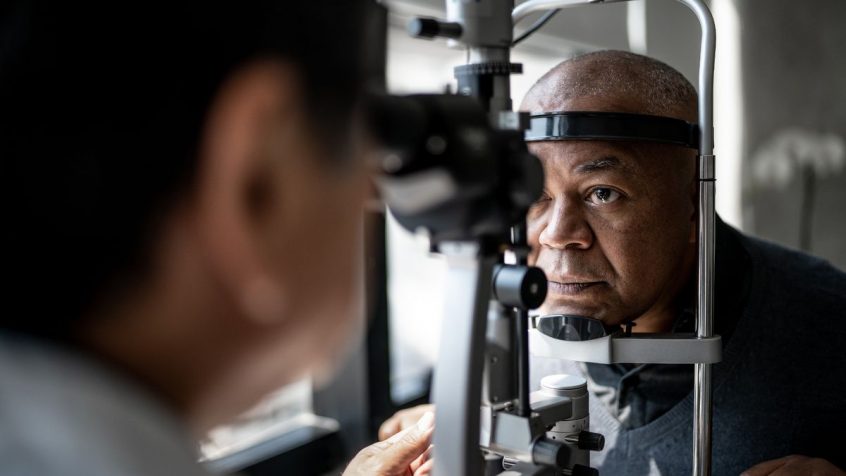The number of health conditions experienced by people living in Britain covers a wide spectrum because more diseases have come ashore as other nations have made the UK their home.
Now it’s our responsibility to see if there’s a variation in the form diseases take in different groups.
For instance, African-Caribbean people with type 1 diabetes are at a greater risk of developing sight-threatening diabetic retinopathy, which if untreated, can lead to blindness.
So we should be grateful to researchers from King’s College London for revealing the relationship between ethnicity and type 1 diabetes-related eye disease.
Diabetic retinopathy is caused by high blood sugar levels damaging the retina at the back of the eye, and it’s the leading cause of blindness in working age people in the UK and many other countries.
This excellent study followed a diverse group from South London over six years who had type 1 diabetes but no signs of retinopathy.
By the end of the study, King’s researchers found African-Caribbean ethnicity is a risk factor for sight-threatening diabetic retinopathy, even when taking into consideration glucose control and blood pressure as well as socio-economic status.
Unsurprisingly, the researchers argue that more thorough eye exams are needed for this ethnicity and other at-risk groups.
Dr Janaka Karalliedde, Clinical Reader in Diabetes and Cardiovascular Disease at King’s, said: “We undertook this study because there are no previous studies in people with type 1 diabetes of the potential impact of ethnicity on diabetic retinopathy.
“Our novel observation that people with type 1 diabetes of African- Caribbean ethnicity are at a 39% greater risk of sight-threatening retinopathy independent of the conventional risk factors suggests that enhanced retinal surveillance and risk- factor control may be needed in such higher risk groups.”
Hilary Nathan policy director at JDRF, the type 1 diabetes charity said: “Sight loss is devastating. This is important research because it helps us begin to understand how rates of type 1 diabetes disease progression can be more aggressive across different ethnicity patient populations.
“Findings like these can help evidence and design more personalised treatment pathways helping to prevent sight loss and disability.”
Evelyn Mensah, of London North West University Healthcare NHS Trust, who wasn’t involved in the study, comments: “Identifying that the risk of sight-threatening diabetic retinopathy is 39% greater in African- Caribbean people is a shocking finding.
“Evidence suggests racial differences in central retinal thickness (CRT) measurements where the CRT is thinner in Black people compared to their white counterparts”.

